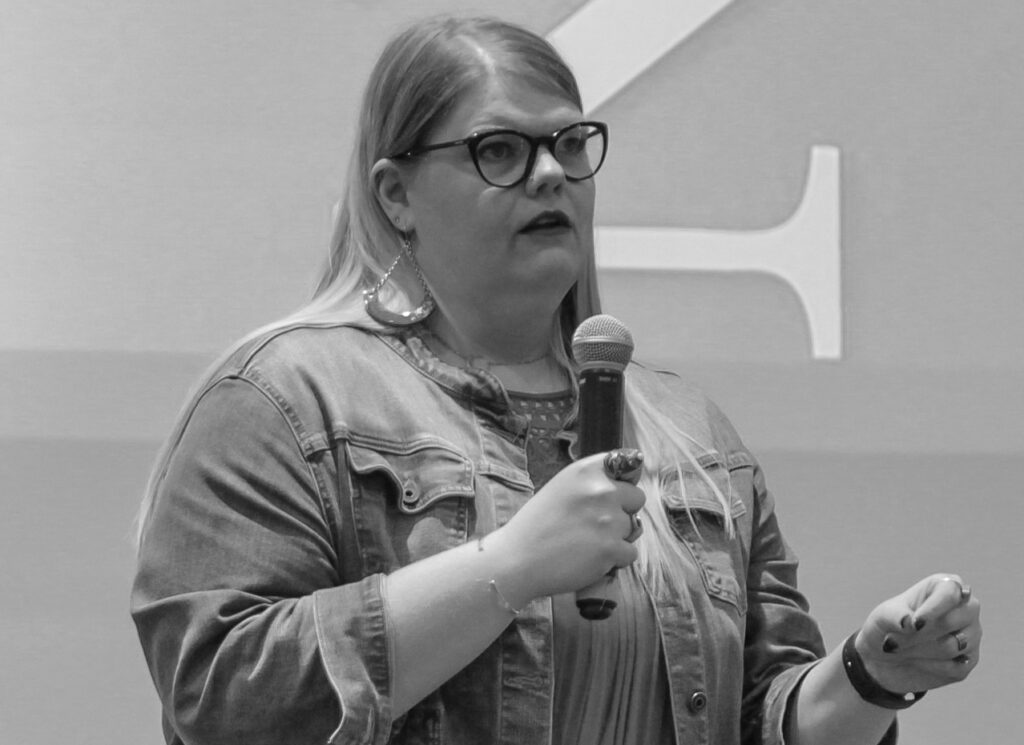A recap of the TBTN annual event at NDSU and a reminder to mark it in the 2023 calendar
Sexual Assault Prevention and Advocacy at NDSU held their Take Back The Night event last week on Wednesday, April 6. Due to poor weather conditions, participants were unable to march throughout campus to protest sexual violence, but that did not stop their outreach to those who are in need of help and/or support.
Different organizations and groups on campus set up booths to share resources and give away some goodies to individuals who arrived.

Photo By | Hayden Austin
Keynote speaker, Errience Fawcett, an Assistant Director of Women and Gender Studies at NDSU, who plans to continue her work at MSUM, presented her take on how the university faculty can help students more than they already are.
“As a person who grew up in a small town in Minnesota, we don’t talk about this,” said Fawcett. “The biggest advice I could give to myself as a 22-year-old is that it is not about the listener, it is about them.”
Fawcett encourages her students to give honest feedback on how well the university takes care of individuals who seek help and support.
“Here is where I am disheartened,” said Fawcett. “I asked them ‘what’s going well?’ but I also said ‘what’s not going well?’ And I would like to say that I wasn’t shocked by what’s not going well, but I was. One of the biggest things that I am shocked by is that when people choose who to tell their story to, including NDSU faculty, they are not believed or sort of put to the side, and that makes me a very unhappy person.”
Students made this point in all three classes of hers. Fawcett says it is now the administration’s job to fix this problem.
“We as administrators have work to do,” said Fawcett. “I really hope that students will continue to be listened to because that’s why we are here. Their stories are really important.”
The event concluded with an open mic session for students and faculty.
Mark this annual event in the 2023 calendar
“Oftentimes when I talk with survivors, they talk about feeling alone or that they feel like they’re going through something by themselves,” said Talcott. “Standing in a room of hundreds of people who are there to support you and care about you, people who have taken time out of their busy schedules to come to an event when they could have stayed at home and watched Netflix hopefully lets those survivors feel less alone, and that there is a community out there for them, a community of survivors, but also people who are really passionate about keeping people safe.”
Talcott encourages students to attend this annual event. Educating on how to end violence once and for all is an important subject that affects all people.
“Sometimes it can feel like, ‘Oh that doesn’t impact me,’ or, ‘I’m not part of the problem, so I don’t need to be involved in that,’” said Talcott. “I think we all need to be involved in the solution for us to get to a community that is free from violence, so if you’re thinking, ‘I don’t know if I feel comfortable there,’ or, ‘I’m not someone who is gonna hurt another person, so why should I go?’ I would really encourage you to think about what you can do to help prevent violence or support the people around you.”
To learn more about the history of Take Back The Night, revisit the previous article Take Back The Night with NDSU.